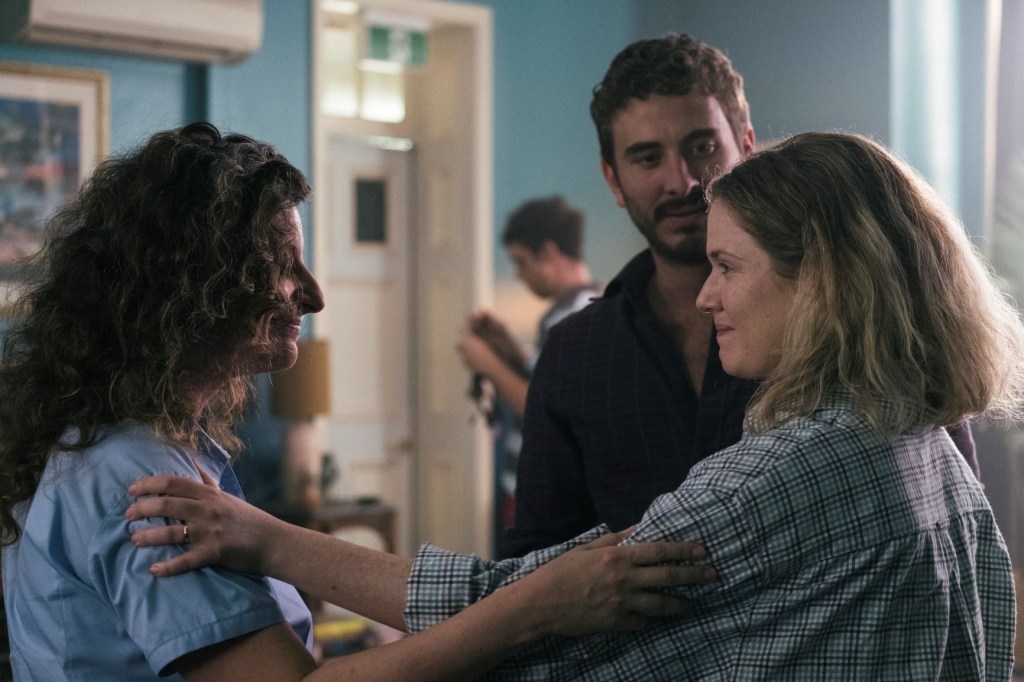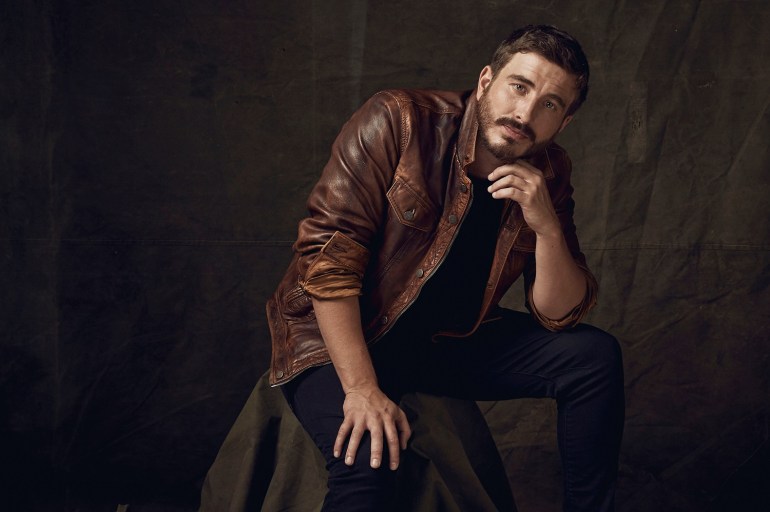On the surface, it may not seem like Game of Thrones prequel House of the Dragon would share much in common with Australian drama The Secrets She Keeps.
But according to Ryan Corr, who went from the production of the HBO fantasy series in England last year to the NSW set of Lingo Pictures’ psychological thriller, both projects demonstrate how the production sector is getting back on track post-COVID.
“Everything in the industry is going against COVID at the moment, but one of the great things about The Secrets She Keeps and also House of the Dragon is that they’re both examples that we’re pushing through without shutting down,” he said.
“This comes from everyone’s due diligence and while things have changed ever so slightly, there’s a real sense of community and togetherness in trying to get these projects done now.
“The Secrets She Keeps is a great example of that here in Australia – although we’ve come up with different challenges, we get together and regroup, reschedule, and move through it.”
Filming wraps this month on the second season of The Secrets She Keeps, an episodic adaptation of Michael Robotham’s novel about an unlikely friendship between two pregnant women.
Corr plays Simon Beecher, the best friend of Michael Dorman’s Jack Shaughnessy, who is the husband of Jessica De Gouw’s Meghan.
The production caps off a busy two-year period for the 33-year-old, during which he was able to build momentum, both domestically and internationally, despite the pandemic.
He began 2020 with eight-part ABC/Jungle Entertainment drama Wakefield, playing one half of a messy but committed couple.

That was followed by a career coup – the role of Ser Harwin ‘Breakbones’ Strong in the highly anticipated HBO’s Game of Thrones prequel House of the Dragon.
Corr entered three months of rehearsals in 2020 ahead of a six-month shoot at Warner Bros. Leavesden Studios in England in 2021, with the series also filming in Devon and Cornwall.
Speaking about the difference between the large-scale series and Australian productions, he said the local sector had proved to be an “incredible training ground”.
“It’s really an exercise in learning how to use your energy differently,” he said.
“In Australia, we’ll do 12-15 scenes a day and shoot about the equivalent in minutes, whereas over there, you can shoot one scene every two weeks.
“If you come in ready to go at the start of the day and are active through all the takes, by the time you get to your time at the end of the day, you can find yourself a little bit depleted.
“In Australia, the industry really trains you up to be ready for everything because we do one or two takes and move through it.
“There is a bit of an adjustment when you go and do bigger scale things but essentially the job is the same – it’s all reliant on trust and who you are working with.”
Based on George R.R. Martin’s Fire & Blood, House of the Dragon tells the story of House Targaryen and is set 200 years before the events of Game of Thrones.
Martin and Ryan Condal serve as co-creators on the series, with the latter also a showrunner alongside Miguel Sapochnik. The pair executive produce with Martin Condal, Vince Gerardis, Sara Lee Hess, and Ron Schmidt.
As Ser Harwin, Corr plays a man believed to be the strongest in the Seven Kingdoms, the eldest son to Master of Laws Lyonel Strong and heir to Harrenhal.
Interest is undoubtedly high in the spin-off following a mixed reception to the Game of Thrones finale in 2019, with the House of the Dragon trailer clocking up more than 15 million views on YouTube since being released four months ago.
While Corr acknowledged there was a legion of fans to whom the story “meant so much”, he had been careful not to let the hype surrounding the series influence any stage of his process.
“There’s a subconscious pressure that can creep up if you are not careful,” he said.
“What Miguel and Ryan talked to us about on set and during the auditions is alleviating all that from your mind.
“They said, ‘We don’t want people on here acting like they are going to be on Game of Thrones, it’s about bringing yourself to the forefront and humanising these people’.”
That is not to say there weren’t times when he became aware of the amount invested in the series, whose predecessor recorded episode production budgets in excess of $10 million.
“The sheer size of it was something I was amazed by,” he said.
“When you are walking into operational sets with actual jousting tournaments and full-level scale castles with fire cauldrons hanging on the roof, it’s a pretty incredible place to be.
“It’s like walking into a live Shakespeare play.”
House of the Dragon is the next step in a career that began in children’s television during the early 2000s, with Corr starting off with roles in Sleepover Club and Blue Water High before going to appear in series’ Underbelly, Packed to the Rafters, Banished, The Commons, Love Child, and Hungry Ghosts, among others.
His feature film work includes Hacksaw Ridge, Holding the Man, Ladies in Black, Below, and High Ground.
In regards to the current climate, Corr said although COVID had made him realise “how unsupported the arts are” in his home country, he felt confident of the local screen industry’s resurgence.
“COVIDs taught us that while we’ve all been at home and devouring content that there’s a craving for good content and local content and things we relate to,” he said.
“People have felt that and now there is a push back, at least from the industry, even though it not being supported in the way we should in this country.
“There’s a push back to say, ‘Hey this is who we are, and if we are not going to be supported, then we are going to come out and do it ourselves’.
“I can really feel that in the independent film world and in the sort of risks we’re taking in the television.”
Going forward, Corr is planning on taking a break, while working on writing projects and attending auditions.
He said he was happy to “jump in the flow” when it came to his immediate future.
“I’m in talks with producers about developing a few projects and ideas that I have been working on for a few years now,” he said.
“Depending on how work goes, I’d very much like to direct but I think once you flick that switch, that can take up to two years of your life and whether that’s at the moment for me or after a few projects this year, well see.”


